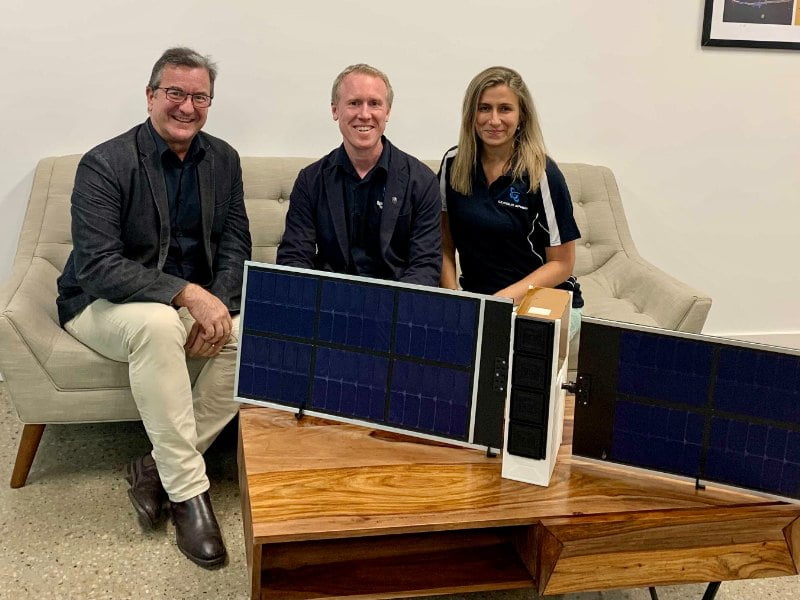The federal government is “behind the eight ball” on the fast-growing space sector, with homegrown companies teaming up to build sovereign capability in the absence of Commonwealth funding support.
Two of Australia’s largest and most successful space companies, rocket manufacturer and launch company Gilmour Space Technologies and nanosatellites maker Fleet Space Technologies, have partnered to launch six nanosatellites into space in 2023.
The deal is another major boost in improving Australia’s sovereign capability in space, with the launch to be from an Australian site, with an Australian-built rocket carrying Australian-built satellites.

But despite the private success, government support for the sector lagging.
“It’s a great demonstration of two of the leading space pioneers that are VC-backed working together, and that we see value in working with each other,” Gilmour Space Technologies chief executive Adam Gilmour told InnovationAus.
“It’s a pristine example of sovereign capability in the absence of government intervention. These are two companies that have raised venture capital, have been financed through venture capital, working together on space capability in Australia.”
While the local space sector is growing at a rapid pace, the government is lagging behind and not offering the support that is needed, Mr Gilmour said.
Mr Gilmour, who is on the space taskforce for the federal Modern Manufacturing Initiative, said his company has not received a dollar from the Australian Space Agency, and is yet to sign any deals with the Defence Department.
This had put his company at a disadvantage compared to its global competitors, he said.
“The industry is moving faster than even the government thinks. It just makes it harder to get the job done,” Mr Gilmour said.
“I’m in the middle of raising my Series C and I’m going to successfully raise a decent amount of money, but at a valuation significantly under my competitors around the world, and the main reason why is because I don’t yet have any kind of deal from the Space Agency or any contract from the Air Force.
“And if I look at my competitors that are at the same level as I am around the world, they’ve all got contracts already. That means they can get a much higher valuation and raise a lot more money. We’re continually behind the eight ball in Australia.”
This government backing is the “last missing piece” of the Australian space puzzle, Mr Gilmour said.
“It’s fantastic the Modern Manufacturing Initiative has space as one of the six priority sectors – that is a positive sign the government is realising this, but it’s beyond the Department of Industry,” he said.
“The Space Agency and Defence department have to step up and start putting more money on the plate for contracts.
“What’s going to happen if they don’t do that soon is we’re just going to do it anyway. It’s just making it that much harder.”
Fleet Space Technologies chief executive Flavia Tata Nardini said the new partnership is an important step in the push for sovereign capability in space and satellites.
“Today’s announcement is the beginning of an ongoing launch service relationship as we work towards our planned constellation of 140 satellites. We are building a strong portfolio of launch service partners, and we are very excited to have Gilmour Space as one of them,” Ms Tata Nardini said.
“As a country we are highly reliant on space technologies from other nations and it’s time to realise that we can have critical sovereign capabilities in satellite development and launch here in Australia.”
Late last year Gilmour Space Technologies signed on its first local customer for its Eris rocket, to be launched next year. This will see the company deliver a 35kg spacecraft into orbit, the largest payload by an Australian company, and the first time a local payload will be launched from an Australian rocket from Australia.
The Fleet satellites will be launched on the third flight of Gilmour’s Eris rocket in 2023.
Earlier this year, Gilmour also announced that it had partnered with Space Machines Company and Fireball.International to send orbital transport Optimus-1 into space in March next year, launching a bushfire detection satellite into orbit.
Do you know more? Contact James Riley via Email.

